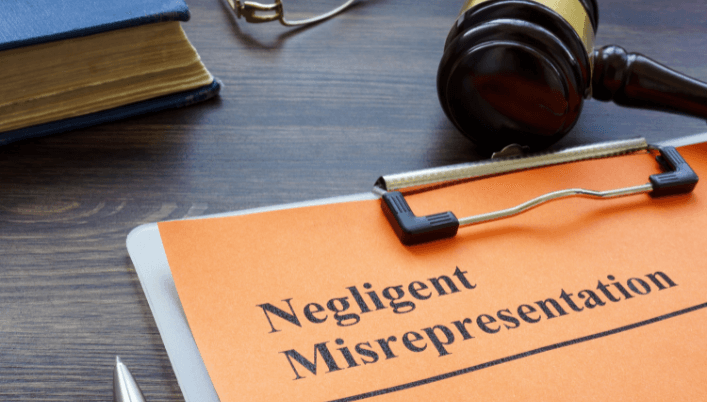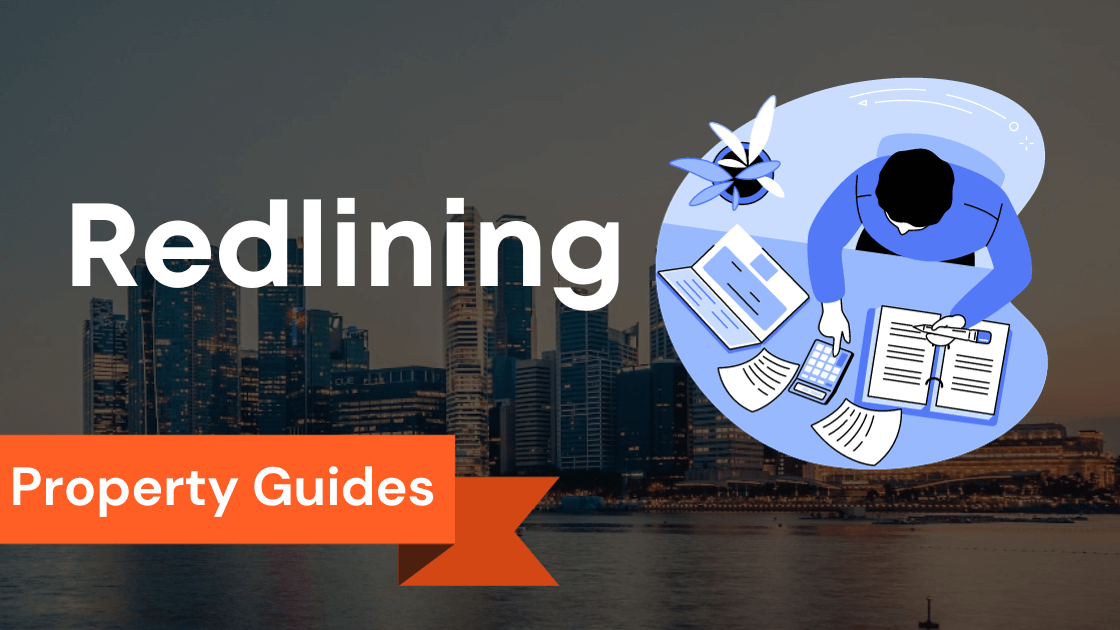Real Estate Puff

What is Real Estate Puffing?
Real Estate Puffing refers to the practice of exaggerating or making subjective statements about a property to attract potential buyers.
It is a common tactic used by real estate agents to highlight the positive aspects of a property and create excitement among buyers.
This can include statements such as “This property has the best view in town” or “You won’t find a better deal than this.
” While some degree of puffing may be acceptable, real estate agents need to be transparent and provide accurate information to buyers.
Examples of Real Estate Puffing
There have been numerous cases of outrageous real estate puffing where agents have made misleading statements to entice buyers.
Some examples include claiming that a property is located in a prime neighborhood when it is actually in a less desirable area, exaggerating the size or features of a property, or making false promises about potential future development in the area.
These tactics can mislead buyers and lead to disappointment and distrust in the industry.
How to Avoid Real Estate Puffing
To promote ethical behavior in the real estate industry and avoid real estate puffing, agents should focus on providing accurate and honest information to buyers.
Here are some tips to avoid puffing:
- Be transparent: Provide clear and accurate information about the property, including its condition, location, and any potential limitations or drawbacks.
- Stick to the facts: Avoid making subjective statements or exaggerated claims about the property. Instead, focus on presenting objective information and showcasing the property’s unique features.
- Provide evidence: Back up any claims or statements with supporting evidence, such as market data, property history, or testimonials from previous buyers.
- Manage expectations: Set realistic expectations with buyers and ensure they have a clear understanding of what the property offers and any potential limitations.
By promoting ethical behavior and providing honest and accurate information, real estate agents can build trust with their clients and contribute to a more transparent and reliable industry.
http://www.youtube.com/watch?v=6iq2qdxSEIE
In conclusion, real estate puffing involves exaggerating or making subjective statements about a property to attract buyers.
While some degree of puffing may be acceptable, agents need to be transparent and provide accurate information to buyers.
By avoiding puffing and promoting ethical behavior, agents can build trust with their clients and contribute to a more transparent and reliable real estate industry.
Key Takeaways
Real Estate Puffing
- Puffing is the practice of exaggerating property features to attract buyers.
- Real estate agents should maintain transparency in their marketing.
Examples of Puffing
- Misleading claims can lead to disappointment and distrust in the industry.
- Puffing should not cross the line into deception or misrepresentation.
How to Avoid Puffing
- Focus on providing accurate and honest information to buyers.
- Use evidence and back up any claims with supporting data.
- Set realistic expectations and manage buyer understanding.
Real Estate Misrepresentation
- Misrepresentation involves providing false or misleading property information.
- It can lead to financial losses, emotional distress, and legal issues for buyers.
Examples of Misrepresentation
- False statements about property features, location, or potential development can mislead buyers.
- Manipulating property images to enhance appearance can be deceptive.
How to Avoid Real Estate Misrepresentation
- Independently verify information provided by sellers, agents, or landlords.
- Request documentation or evidence to support property claims.
- Seek advice from real estate professionals and carefully review contracts.
Real Estate Fraud
- Real estate fraud involves illegal activities with the intention of personal gain.
- It includes misrepresentation, identity theft, mortgage fraud, foreclosure fraud, and property flipping.
Examples of Real Estate Fraud
- Fraudulent statements about property details, manipulating appraisals, and false mortgage information are common examples.
How to Avoid Real Estate Fraud
- Protect personal information and be cautious about sharing it.
- Independently verify information, conduct research, and engage reputable professionals.
- Review contracts and documents thoroughly.
Real Estate Agents and Puffing
- Real estate agents use puffing as a marketing tool to generate interest.
- Ethical use of puffing involves maintaining transparency and avoiding deception.
How to Hold Agents Accountable for Puffing
- Regulatory bodies establish guidelines to promote ethical behavior in the industry.
- Informed consumers can protect themselves by verifying information and working with reputable agents.
Real Estate Ethics in Singapore
- Puffing is considered ethical when used appropriately, maintaining transparency.
- Regulatory bodies enforce professional standards and regulations to ensure ethical conduct.
Promoting Ethical Behavior
- Real estate agencies and industry associations should conduct training to enhance ethical awareness.
- Agents should prioritize transparency and honesty in their marketing.
Content and Structure of Property Listings
- Property listings should accurately represent property features and conditions.
- Avoid making false claims or deceptive statements in marketing materials.
Puffing Times and Activity
- Real estate agents should exercise ethical judgment and avoid excessive or misleading puffery.
- Maintain a balance between promoting property features and providing accurate information.
Real Estate Misrepresentation

What is Real Estate Misrepresentation?
Real estate misrepresentation refers to the unethical practice of providing false or misleading information about a property to deceive or defraud potential buyers or tenants.
It involves making false statements, exaggerations, or withholding relevant information to make the property appear more desirable or valuable than it is.
Victims of real estate misrepresentation may suffer financial losses, emotional distress, and legal complications.
Real estate misrepresentation can occur in various forms, including misrepresentation of the property’s condition, location, amenities, or potential for development.
Additionally, misrepresentation can also involve false promises or guarantees regarding future returns on investment.
These deceptive practices undermine the trust and integrity of the real estate industry and can have serious consequences for all parties involved.
Examples of Real Estate Misrepresentation
Examples of real estate misrepresentation include directly lying about a property’s features, such as falsely claiming that it has been recently renovated or that it is located in a highly desirable neighborhood.
Misrepresentation can also involve misleading statements about the potential for future development in the area, such as falsely promising that a shopping mall or a park will be built nearby.
These false statements can lead buyers to make uninformed decisions based on inaccurate information.
Another common example of misrepresentation is the manipulation of photographs or virtual tours to make the property appear larger, more luxurious, or in better condition than it is.
Real estate agents or listing websites may use wide-angle lenses, strategic editing, or virtual staging to enhance the property’s appearance.
While some degree of visual enhancement may be acceptable, intentionally misrepresenting the property through misleading images crosses ethical boundaries.
How to Avoid Real Estate Misrepresentation
To safeguard against real estate misrepresentation, buyers and tenants should take certain precautions to ensure they are provided with accurate and reliable information.
Here are some tips to avoid falling victim to real estate misrepresentation:
- Safeguard Yourself: Conduct thorough research about the property, its location, and the seller or agent involved. Verify the information provided independently through reliable sources.
- Substantiate Claims: Request documentation or evidence to back up any claims made about the property. This could include inspection reports, property history, permits, or legal documents.
- Consult Experts: Seek advice from real estate professionals, such as independent appraisers or lawyers, who can provide objective analysis and guidance throughout the buying or renting process.
- Review Contracts: Carefully read and understand all contracts and agreements related to the property transaction. Seek legal advice if necessary to ensure you are protected from potential misrepresentation.
https://www.youtube.com/watch?v=aWvV5sBVQyM
By taking these precautions, buyers and tenants can minimize the risk of falling victim to real estate misrepresentation and make more informed decisions.
All parties in the real estate industry need to uphold ethical standards and provide accurate and transparent information to maintain trust and integrity in the market.
Real Estate Fraud

What is Real Estate Fraud?
Real estate fraud refers to illegal activities in the real estate industry that involve fraudulent or deceptive practices for personal gain.
It typically involves knowingly providing false information or manipulating property details to deceive buyers, sellers, or tenants.
Real estate fraud can have serious legal consequences for those involved and can result in financial losses, legal disputes, and damage to the reputation of individuals or companies.
Real estate fraud can take several forms, including:
- Misrepresentation of Property: This involves lying about or exaggerating the features, condition, location, or potential of a property to make it appear more valuable or desirable.
- Identity Theft: Fraudsters may impersonate property owners or forge documents to gain access to properties or deceive potential buyers or tenants.
- Mortgage Fraud: This occurs when false information is provided for mortgage loan applications, such as inflating icome or concealing debts.
- Foreclosure Fraud: Fraudsters take advantage of financially troubled homeowners by offering fake loan modification services or illegally transferring property titles.
- Illegal Property Flipping: This involves buying a property, making minimal improvements, and then selling it at an inflated price without disclosing the true condition or history of the property.
Examples of Real Estate Fraud
Examples of real estate fraud include directly lying about a property’s features, such as falsely claiming that it is in a prime location or has recently undergone renovations.
Fraudulent sellers or agents may also manipulate property appraisals or falsify property records to deceive buyers or lenders.
Another common example is mortgage fraud, where individuals provide false income or employment information to qualify for loans they wouldn’t otherwise be eligible for.
They may also engage in identity theft to fraudulently purchase properties or secure loans.
How to Avoid Real Estate Fraud
To protect yourself from real estate fraud, here are some important precautions to take:
- Safeguard Your Personal Information: Protect your personal and financial information and be cautious about providing it to unknown individuals or companies.
- Verify Information: Independently verify all information provided by sellers, agents, or lenders. Conduct research, confirm property details, and check the credentials of individuals involved.
- Get Professional Inspections and Appraisals: Have independent inspections and appraisals conducted to verify the condition and value of a property.
- Review Contracts and Documentation: Carefully read and understand all contracts and documents related to property transactions. Seek legal advice if necessary to ensure you are protected.
- Consult Professionals: Engage reputable real estate agents, lawyers, or financial advisors who have expertise in the industry and can provide guidance throughout the process.
By taking these precautions and being vigilant, you can reduce the risk of falling victim to real estate fraud and make informed decisions in your property transactions.
All parties involved in the real estate industry must uphold ethical standards and ensure transparency to maintain trust and integrity in the market.
Real Estate Agents and Puffing

Real estate agents often utilize various techniques to attract potential buyers and close deals.
One common practice is puffing – a marketing tactic used to exaggerate the positive aspects of a property.
While puffing is a legal strategy, real estate agents need to understand when and how to use it ethically.
When Can Real Estate Agents Use Puffing?
Real estate agents can employ puffing as a means to generate interest and enthusiasm among buyers.
Puffery involves making bold statements or subjective opinions about a property’s features, potential, or value.
This technique aims to create a positive impression and ignite buyer interest.
For example, an agent may describe a property as “perfect for entertaining” or “a dream home” to capture attention.
In such cases, real estate agents should ensure that their puffery statements are not deceptive or misleading.
The statements should be subjective opinions rather than verifiable factual claims.
Agents should also avoid making false statements about the property or providing inaccurate information.
Transparency and honesty are crucial in maintaining trust with clients.
When Can Real Estate Agents Not Use Puffing?
While puffing can be an effective marketing tool, real estate agents need to recognize its limitations and ethical boundaries.
Agents should not engage in puffery that crosses the line into deception or misrepresentation.
Making false statements about a property’s condition, location, or potential is unethical and can lead to legal repercussions.
Real estate agents should avoid making claims that can be proven false or misleading to potential buyers.
It is important to differentiate between puffery and making fraudulent statements that could influence a buyer’s decision.
How to Hold Real Estate Agents Accountable for Puffing
To ensure the ethical behavior of real estate agents regarding puffing, it is essential to hold them accountable.
Real estate agents are required to hold a valid real estate license, which includes adhering to professional standards and regulations.
Regulatory bodies in the industry should establish guidelines and enforce them to promote ethical behavior and transparency.
Consumers can also play a role in holding real estate agents accountable by being informed and aware of their rights as buyers.
It is crucial to ask questions, conduct independent research, and verify any claims made by agents.
Working with reputable agents and seeking recommendations from trusted sources can help ensure a positive and transparent experience.
In conclusion, puffing is a legitimate marketing technique used by real estate agents to generate interest and excitement about properties.
However, agents need to exercise ethical judgment and avoid crossing the line into deception or misrepresentation.
Regulatory bodies and informed consumers can contribute to promoting responsible and transparent practices within the real estate industry.
Real Estate Ethics and Puffing in Singapore

In the world of real estate, real estate agents often employ various marketing techniques to attract potential buyers and close deals.
One such technique is puffing, a marketing tactic used to exaggerate the positive aspects of a property.
While puffing is a legal strategy, real estate agents in Singapore must understand when and how to use it ethically.
Is Puffing Ethical in Real Estate?
Puffing can be considered ethical in the real estate industry when used appropriately.
It involves making bold statements or subjective opinions about a property’s features, potential, or value.
This technique aims to create enthusiasm and interest among potential buyers.
For example, an agent may describe a property as “the perfect investment opportunity” or “a hidden gem.”
However, real estate agents must strike a balance between promoting a property and providing accurate information to potential buyers.
Transparency and honesty should always remain at the forefront of any marketing strategy.
Promoting Ethical Behavior
To ensure ethical behavior in the real estate industry, regulatory bodies in Singapore have established guidelines and enforce them to maintain transparency and protect consumers.
Real estate agents are required to hold a valid real estate license, which includes adhering to professional standards and regulations.
Additionally, promoting ethical behavior relies on educating both real estate agents and buyers about their rights and responsibilities.
Real estate agencies and industry associations can conduct regular training sessions and workshops to enhance ethical awareness and emphasize the importance of providing accurate information to potential buyers.
Content and Structure of Property Listings
In Singapore, property listings should accurately represent the features and conditions of a property.
Real estate agents should avoid making false claims about a property’s location, amenities, or future potential.
Any subjective statements made in marketing materials should be identifiable as opinions rather than verifiable facts.
Ensuring the accuracy of property listings benefits both real estate agents and potential buyers.
Buyers can make informed decisions based on reliable information, and agents can build trust and credibility in the industry.
Puffing Times and Activity
Real estate agents should exercise ethical judgment when it comes to puffing.
Excessive or misleading puffery can tarnish the reputation of an agent and harm relationships with potential buyers.
It is essential to strike a balance between promoting a property’s positive aspects and remaining honest and transparent.
Agents should avoid engaging in puffery that crosses the line into deception or misrepresentation.
By ensuring ethical practices, agents can maintain trust and credibility in the industry.
Conclusion
After exploring the concept of property puffing in Singapore and understanding its implications in real estate transactions, it can be concluded that puffing is legal and commonly practiced in the industry.
Puffing refers to statements made by sellers that exaggerate the qualities or value of a property to attract buyers.
It is important to note that puffing is not considered illegal because it does not involve the deliberate concealment of material facts or misrepresentation.
Puffing statements are subjective and often used as a marketing tactic to generate interest in a property.
Prospective buyers should be aware of this term used in real estate and understand that puffing occurs when a seller makes exaggerated claims without any intention to deceive.
While puffing may seem harmless and commonplace, both buyers and sellers must navigate real estate transactions with caution.
Buyers should always do their due diligence, ask relevant questions, and obtain important documents to ensure that they are making an informed decision.
Realtors have a responsibility to provide accurate information and should refrain from engaging in deceptive practices.
If a buyer discovers a defect or discrepancy in the property that was not disclosed by the seller, they have legal recourse.
Singapore has consumer protection laws in place to protect buyers from fraudulent practices.
If a buyer believes they have been cheated or misled, they can seek legal advice and potentially sue for damages.
Buyers need to approach real estate transactions with realistic expectations.
While a seller may claim that a property is in excellent condition or “plumb,” it is advisable to conduct independent inspections and assessments to confirm the property’s true condition.
This helps avoid any potential misunderstandings or disputes down the line.
In conclusion, property puffing is a common practice in the real estate industry in Singapore.
While puffing statements are often made by sellers to attract buyers, both buyers and sellers need to understand the difference between puffing and misrepresentation.
Buyers should take the necessary steps to protect themselves, seek legal advice if needed, and approach real estate transactions with caution and diligence.
By doing so, they can navigate the market more confidently and make informed decisions about their new home.
Frequently Asked Questions
What is property puffing?
What is the difference between puffing and misrepresentation in real estate?
Can you provide an example of puffing in real estate?
Is puffing legal in real estate?
What does the term puffing refer to in real estate?
What is an acceptable practice in real estate?
Can you give examples of puffing and misrepresentation in real estate?
” Examples of misrepresentation could be falsely claiming that a property has certain amenities or features that it does not.
What is the difference between puffing and misrepresentation in real estate?
Are there any legal consequences for puffing in real estate?
What is the real estate exam?
It typically covers various topics related to real estate laws, regulations, and practices.












